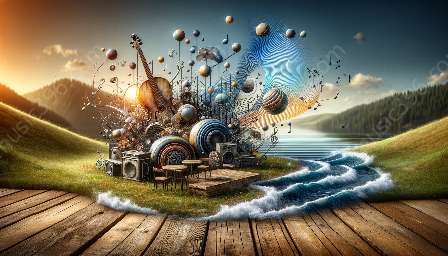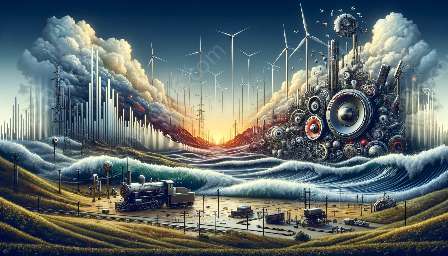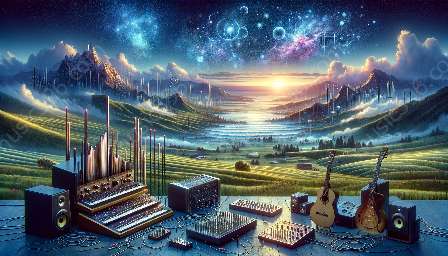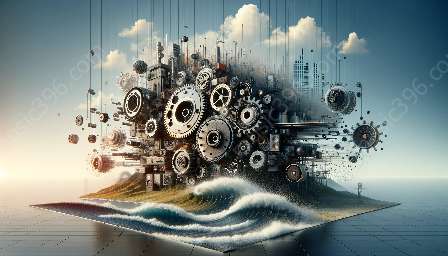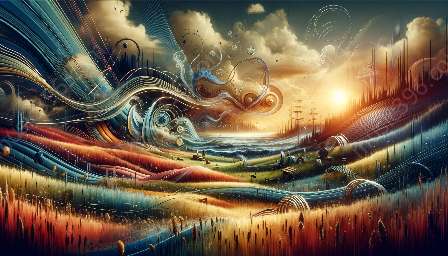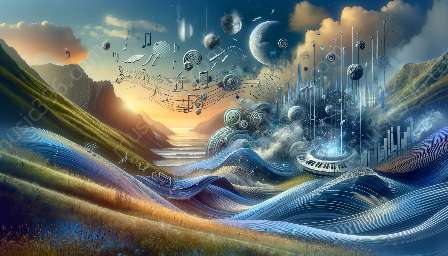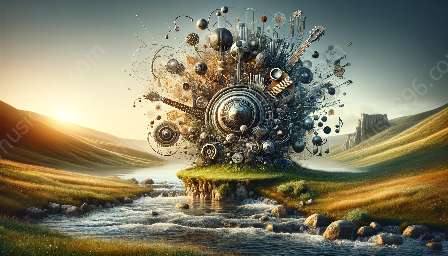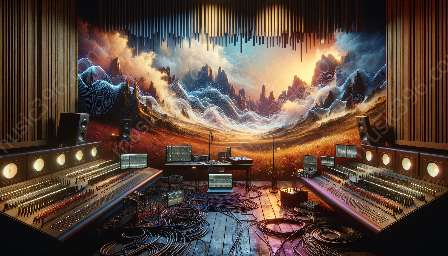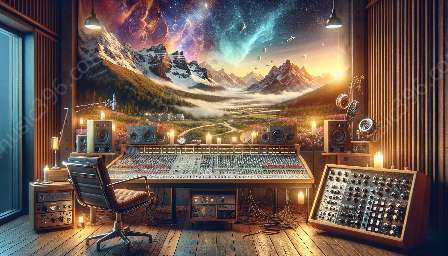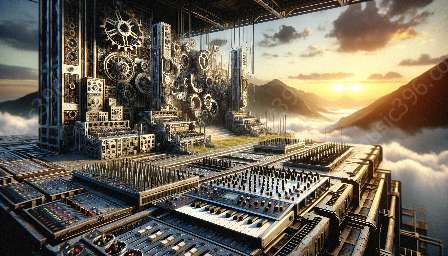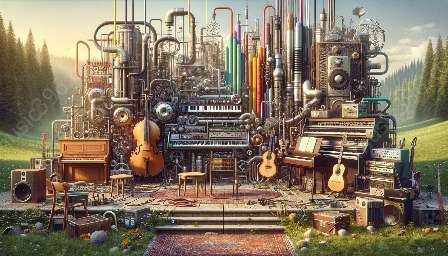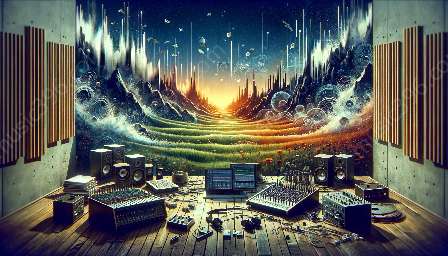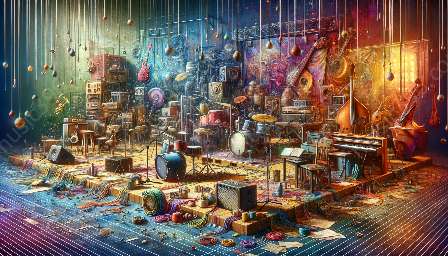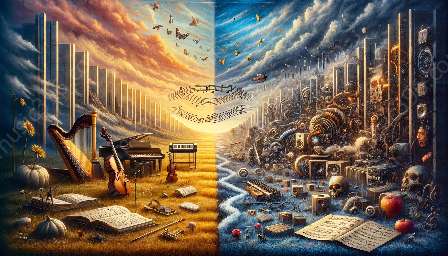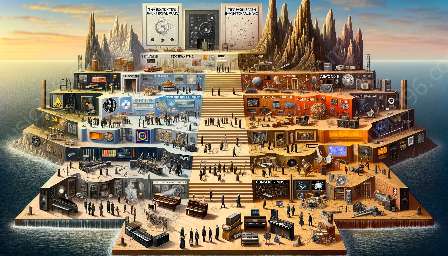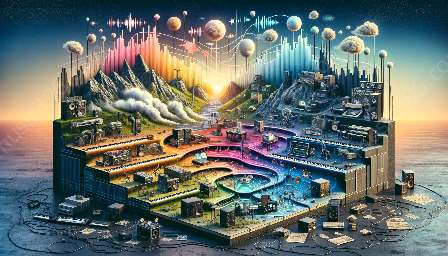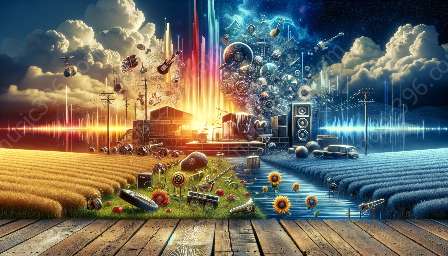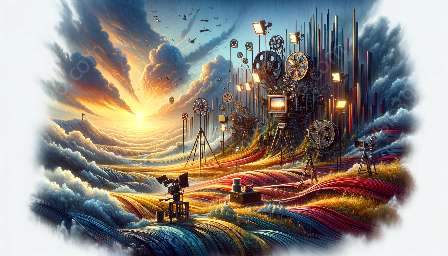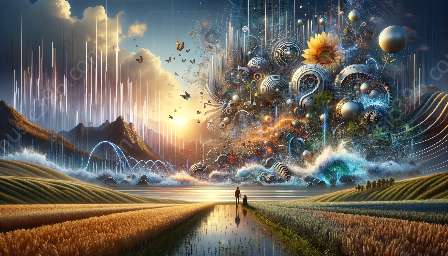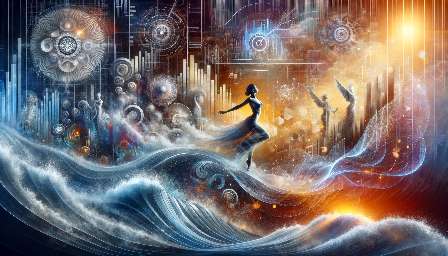Experimental music composition is a fascinating genre that often incorporates philosophical theories as a foundation for its creative process. This article will explore the philosophical concepts and ideas that have influenced experimental music, as well as the impact of influential experimental music artists and their contribution to the experimental and industrial music genres.
Philosophical Theories and Their Influence
Experimental music composition is inherently philosophical, drawing from a range of theoretical frameworks to inform its creative process. One prominent philosophical theory that has influenced experimental music composition is phenomenology, which emphasizes the lived experience of sound and music. Phenomenological approaches to music composition seek to capture the essence of sonic perception and explore the ways in which sounds interact with human consciousness.
Another influential philosophical concept in experimental music composition is avant-garde aesthetics, which challenges traditional notions of harmony, melody, and rhythm. Experimental composers often draw inspiration from avant-garde art movements, such as Dadaism and Surrealism, to create music that pushes the boundaries of sonic expression and challenges conventional aesthetic norms.
Additionally, the philosophy of sound ecology has played a crucial role in shaping experimental music composition. Sound ecologists explore the relationship between sound and the natural environment, and experimental music artists often incorporate environmental sounds and field recordings into their compositions to evoke a sense of place and environmental consciousness.
Influential Experimental Music Artists
Several influential experimental music artists have made significant contributions to the genre, drawing from philosophical theories to inform their creative practice. One such artist is John Cage, whose pioneering work in experimental music composition drew heavily from principles of chance operations and indeterminacy. Cage's compositions, such as "4'33", challenged traditional notions of musical performance and expanded the possibilities of sonic expression.
Another prominent figure in experimental music is Karlheinz Stockhausen, known for his groundbreaking electronic compositions and innovative approaches to spatial and temporal sound exploration. Stockhausen's work reflects a deep engagement with philosophical concepts, particularly in his use of serialism and electronic sound manipulation to create immersive sonic experiences.
Furthermore, artists like La Monte Young and Terry Riley have been instrumental in shaping experimental music through their exploration of minimalism and drone music. Their compositions often engage with concepts of sonic repetition and duration, drawing from philosophical ideas of time and perception to create meditative and immersive sonic environments.
Impact on Experimental & Industrial Music
The philosophical underpinnings of experimental music composition have had a profound impact on the development of the experimental and industrial music genres. Experimental music's emphasis on pushing the boundaries of sonic expression and challenging conventional aesthetic norms has influenced the emergence of industrial music, which often incorporates elements of noise, distortion, and unconventional sound sources.
Industrial music artists, such as Throbbing Gristle and Einstürzende Neubauten, draw from the experimental ethos to create music that explores themes of urban decay, technological alienation, and the deconstruction of traditional musical structures. The philosophical concepts underlying experimental music composition have provided a fertile ground for the development of industrial music as a genre that confronts social, political, and existential themes through sound and performance.
Overall, the philosophical theories in experimental music composition have not only shaped the creative processes of experimental music artists but have also had a lasting impact on the evolution of the experimental and industrial music genres. By embracing diverse philosophical frameworks and pushing the boundaries of sonic expression, experimental music continues to inspire innovation and creative exploration in the realm of sound art and musical experimentation.

